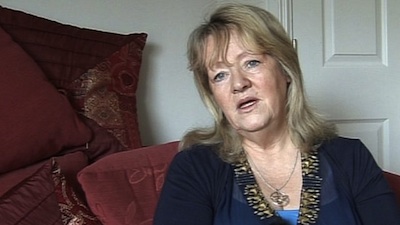
The survivors of the Magdalene laundries have demanded a meeting with the Taoiseach after a report showed the state had heavy involvement in the unofficial detention centres.
A variety of social and legal pretexts were used to imprison both girls and women in the laundries, where they were forced to engage in hard physical labour without payment and without access to education, regardless of age.
Although run by convents, many described their experiences as akin to a slave labour camp. Others have been too fearful to speak out.
The 18-month long inquiry found more than one in 5 of the women detained by the religious orders were sent by the authorities. The average age of the inmates was 23, but almost one in ten died, often from injuries related to their labour.
The full picture was made difficult to assemble because key files on the laundries were “missing” - according to the report’s author, former Senator Martin McAleese, the husband of former President Mary McAleese.
The response by the Taoiseach, who expressed only regret for the “stigma” attached to the laundries, was widely criticised.
Surviving women rejected his comments and demanded a fuller admission of responsibility from the government and the religious orders involved.
Maureen Sullivan was an innocent 12-year-old child when taken from her school in County Carlow and put in the Good Shepherd Magdalene Laundry in New Ross, County Wexford, because her father died and her mother remarried.
She said she was told that this place would further her education, but she never saw her schoolbooks again. Like many other inmates, the nuns would not call her by her real name.
For 48 years she has been haunted by memories of a lost childhood filled with slave labour. She is demanding a full apology from the government and religious orders for stealing her education, name, identity and life.
“I feel that they are still in denial, but other parts of this report clearly state that we were telling the truth,” she said.
She worked all day in the laundry, was fed bread and dripping, and then made Aran sweaters or rosary beads before going to bed at night in St Aidan’s Industrial School.
“It was long, hard tedious work and because I was small they made a timber box,” said the 60-year-old.
“I remember being hidden in a tunnel when the (industrial) school inspectors came.
“I can only assume that this was due to the fact that I should not have been working in the laundry.”
Even at the weekends, the youngster was forced to clean the floors of the local church when she should have been out playing and meeting other children.
Mary Smyth, another surviving former inmate, also described inhumane conditions in a laundry, which she said was worse than being in prison. “I will go to the grave with what happened. It will never, ever leave me,” she said.
Steven O’Riordain, a representative of the Magdalene Survivors Together group, warned some women would go on hunger strike if the government did not meet their demands after a parliamentary debate in two weeks.
Following anger this week at the government’s evasive response, Tanaiste Eamon Gilmore has said that he and the Taoiseach intended to meet the survivors.
“These women have suffered. What they endured was wrong,” he admitted. “What happened in this country over those decades was appalling and this government has heard these women and we have taken what they have to say seriously.”
Sinn Féin Deputy Leader Mary Lou McDonald TD called on the Taoiseach to issue a full apology on behalf of the state to the surviving women.
“Questions must be asked about the Taoiseach’s motivation for failing to apologise to these women,” she said.
“The role of responsible government is not to circle the wagons to protect the State from any financial liability that might arise from its participation in wrongdoing.
“Citizens right across this country are watching in horror as they hear yet another story of brutalisation within institutions and of the State’s relationship with those institutions and the State’s stubbornness in refusing to face, head on, its responsibilities to the victims.”
Mr O’Riordan said the women he has worked with still believe it important that they meet directly with the Taoiseach.
“They feel that by relaying their stories personally he will recognise the importance of giving a full apology,” he said.
“I am optimistic a State apology will come in two weeks. I think he will do the right thing.”
![[Irish Republican News]](https://republican-news.org/graphics/title_gifs/rn.gif)
![[Irish Republican News]](https://republican-news.org/graphics/title_gifs/harp.gif)

